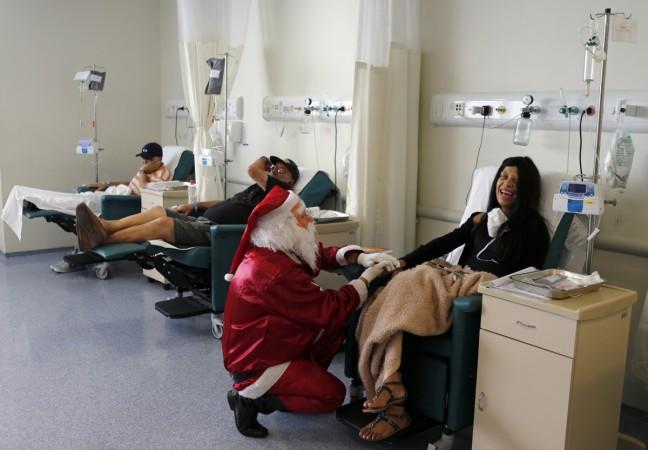
A new clinical trial has bolstered the view that cooling caps can actually help prevent hair loss in cancer patients during chemotherapy. The Food and Drug Administration (FDA) gave approval for the first cooling cap system for cancer patients in the United States a year back.
During the trial, it was observed that among the 95 breast cancer patients who underwent the cooling cap treatment, around 48-51 percent had good amount of hair after four cycles of chemotherapy, while 47 patients who did not go through the cooling cap treatment lost their hair after the rounds of chemotherapy.
Since the outcome of this trial was found to be quite significant, the data safety and monitoring board took the decision to stop the study at an early stage and publish the results. The study was presented on December 9 at the San Antonio Breast Cancer Symposium.
The function of chemotherapy is to eliminate rapidly dividing cancer cells. Since hair cells also divide rapidly, the cancer treatment leads to hair loss in patients who undergo chemotherapy.
The cooling cap helps in safeguarding hair follicles by reducing the exposure of the chemotherapy agent on them. It cools the scalp to around 18.9 degrees Celsius (66 degrees Fahrenheit), which results in narrowing the blood vessels and ends up lowering the blood flow by 20-40 percent. The depletion in the blood flow results in lessening the reach of the chemotherapy drug to the hair follicles, as the drug also travels through the blood vessels.
Women who were in the first or second stage of breast cancer wore the silicon caps for half an hour before the beginning of the chemotherapy treatment. They continued wearing the cap throughout the treatment and for one-and-a-half hours after the treatment got over.
The surveyors analysed the hair loss after four chemotherapy rounds. They were unaware if the cooling cap was used by the patients. The breast cancer patients were believed to have hair preservation if their hair looked fine from a distance and they didn't have to hide their hair loss using wigs.
The researchers of this study plan to follow these patients for a span of five years to examine if depletion in chemotherapy leads to spreading of cancer in their scalp. The overall survival will also be observed.
The researchers tested the cooling cap on breast cancer patients as they suffer from more hair fall and women are more impacted emotionally than men suffering from hair loss. People having any solid tumour are believed to get benefited by the cooling caps.
Dr Julie Rani Nangia, the lead author of the study from Baylor College of Medicine, Houston, said in a statement that the cooling caps should not be tried on patients suffering from blood cancer or leukaemia as it narrows the blood vessels, the Los Angeles Times reported.
The trial was funded by Paxman Cooling, which produces the Orbis Paxman Hair Loss Prevention System, presently being analysed by the FDA.

















